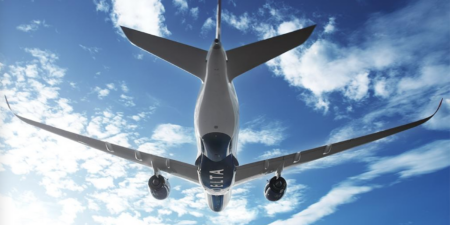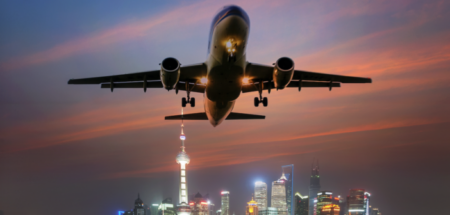December 13, 2016 – A deliberately disruptive force in aviation is seeking to reduce commoditization in the air travel experience and greatly increase customization. The force in question is A³, the advanced projects and partnerships outpost of Airbus Group. Based in Silicon Valley, the mission of this division is to disrupt thinking within Airbus Group – and indeed the rest of the aerospace industry – ‘before someone else does’.
A³ has begun by developing Transpose, a modular aircraft cabin concept that would give airlines, manufacturers and regulators the tools to rapidly bring more diverse experiences to market. The team believes the concept could reduce the time it takes to customize an aircraft cabin by a factor of three, and take the speed of aircraft reconfiguration from weeks to hours – or even minutes, according to Jason Chua, project executive.
A³ gives the example of an afternoon flight landing at San Jose airport carrying a modular cabin with a conventional seating arrangement, which is then swapped out for a cabin fitted with bunks to make the following overnight flight to Singapore a more restful experience for passengers. For the next leg – a short flight to Macau – the airline could swap out the sleeper cabin for a spa experience so tourists can begin their vacations feeling refreshed. Visit our Videos page to see the concept in action.
Yeah right, a spa
Admittedly the mention of a flying spa will cause many to disregard the concept as just another frivolous concept, just another revisiting of the modular cabin idea. However, says A3, what makes Transpose different, is that it does not require a new kind of aircraft – just the freighter variants of today’s large commercial aircraft.
According to Chua at A³, modeling and research work on the project has shown that many modular experiences could be provided with little to no increase in the amount passengers currently pay for comparable experiences on the ground. Additionally, “significant” opportunities for advertisers and businesses to provide new revenue to airlines have been identified – a Starbucks-style modular coffee shop for example – which could potentially absorb the costs to passengers.
Below: The modular cabins would simply be loaded into the freighter variants of today’s large commercial aircraft. Could Airbus ultimately benefit Boeing’s 747 sales?
A pragmatic approach
Manufacturers of aircraft and aircraft interiors could also benefit, according to A³, as the Transpose concept means that modular cabin interiors could be developed on a timetable running parallel with the core fabrication of the aircraft itself.
The modular architecture would also see the various complex cabin systems – such as the wiring systems – built into a set of streamlined module design rules that comply with the with overall aircraft certification requirements. This simplification and integration of systems would allow suppliers to focus their energies on improving the passenger experience rather than tackling complex engineering challenges, as well as enabling new companies to enter the commercial aviation market.
Looking ahead
The A³ team believes that Transpose-enabled aircraft could be flying “within a few years”, an aim supported by the recent recruitment of a group of engineers, designers and researchers from across the globe, who also have the support of Airbus Group’s experts in cabin and airframe engineering, as well as industrial design.
According to Chua, A³ has manufactured an initial module and a full-sized aircraft mockup to demonstrate the technical and economic feasibility of the concept and to gauge public reaction. A³ has also begun talking to regulators about the viability of the concept.




